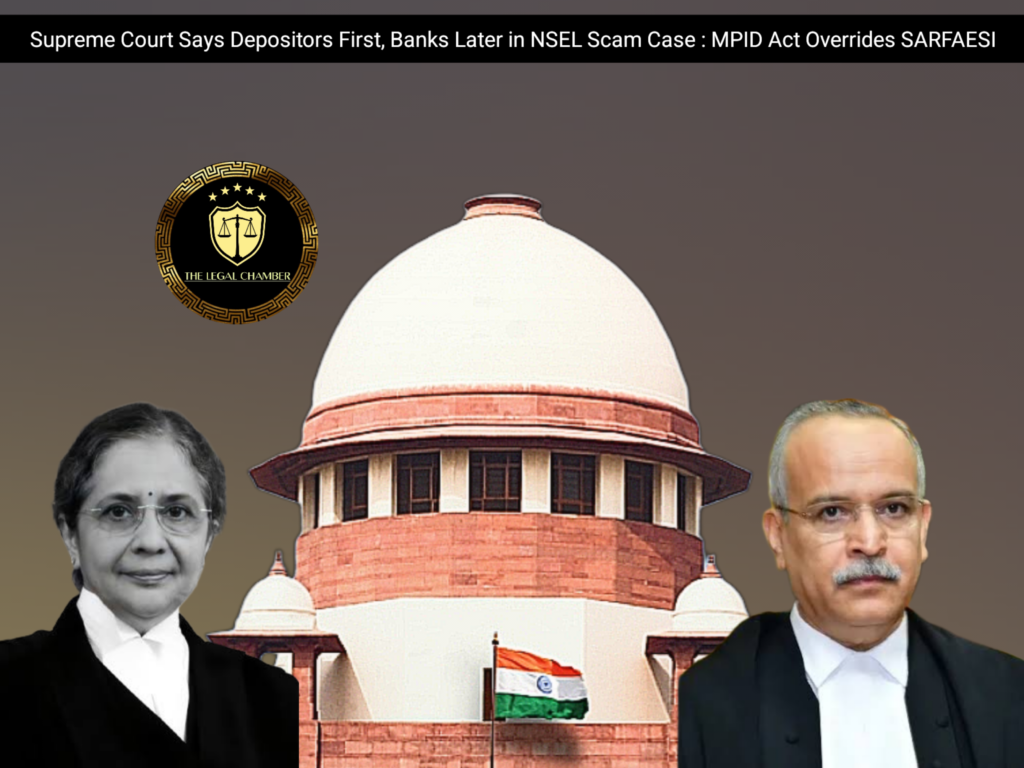
The Supreme Court ruled that the Maharashtra Protection of Investors and Depositors (MPID) Act 1999 prevails over the SARFAESI Act, 2002 and Recovery of Debts Act 1993, denying secured creditors priority over assets attached under MPID. It also held that properties attached under MPID remain outside IBC moratorium, ensuring depositor claims take precedence over insolvency proceedings. The judgment reaffirms state legislative competence under List-II (State List) and upholds federalism by preventing central laws from overriding state-enacted investor protection measures.
Facts Of The Case:
The case arose from the 2013 National Spot Exchange Limited (NSEL) scam, where around 13,000 investors lost approximately ₹5,600 crores due to payment defaults by trading members. NSEL, a commodity exchange platform, faced allegations of fraud, leading to FIRs under PMLA and MPID Act. The Enforcement Directorate (ED) and Maharashtra government attached properties of defaulters under these laws. Meanwhile, secured creditors (banks and financial institutions) claimed priority over these assets under SARFAESI Act and Recovery of Debts Act.
NSEL filed a writ petition in the Supreme Court seeking consolidation of recovery proceedings. The Court appointed a Supreme Court Committee to oversee execution of decrees. The Committee ruled that:
-
Secured creditors cannot claim priority over assets attached under PMLA and MPID Act.
-
Properties attached under MPID Act before insolvency remain outside IBC moratorium.
Challenging these orders, secured creditors and defaulters argued that central laws (SARFAESI, IBC) should prevail over state laws (MPID Act). However, the Supreme Court upheld the Committee’s decision, emphasizing MPID Act’s validity as a state law protecting depositors. It clarified that IBC moratorium does not apply to properties already attached under MPID Act, ensuring investor repayments take precedence over insolvency claims. The judgment reinforced federalism by recognizing state legislative power in investor protection matters.